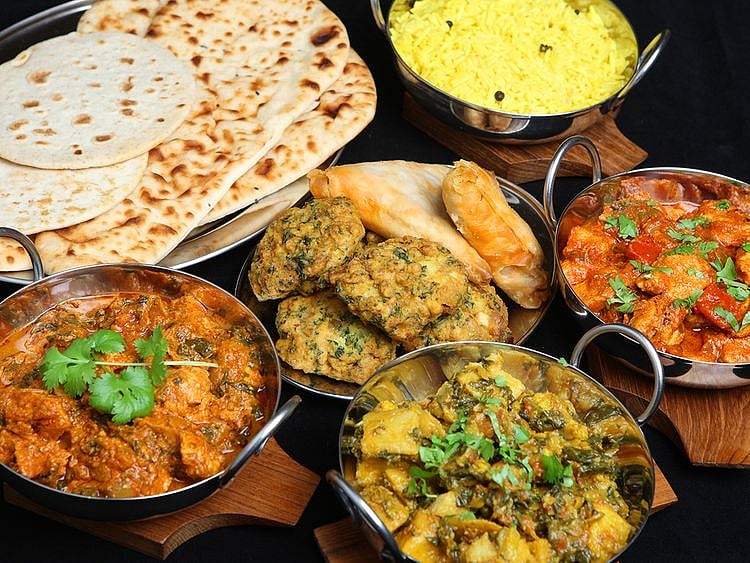How to devour food fiction
If you do find more delicious Indian flatbread elsewhere, I shall eat my words

The kitchen has always been the heart of our house, throbbing with various culinary activities, the rich aroma of freshly ground spices wafting from the hearth, as my grandmother would oversee the cooking, patiently stirring each dish, with a dedicated frown on her sweaty forehead and a smile on her lips. Making sure that the fish, especially the much coveted ‘Hilsa’ was marinated just right, with mustard, steamed to perfection. Breakfast would mostly comprise of the ‘luchi’ (deep fried flatbread) that had to be fried just right, not too white nor too brown, served with fried potato and sliced aubergine fries. Lunch used to be a seven-course affair. My father, an aficionado of Bengali, Awadhi and Mughal cuisines would never settle for anything imperfect. Every morning he would set out to the fish and vegetable market to buy fresh ingredients for the day’s meals. Now with the ongoing pandemic one person who’s first on his morning callers’ list is Panchu da, the fish-seller, who sends pictures on WhatsApp of the fish that his client would love for sure.
If different ideologies try and divide the members of our family it is food that binds us together. Food identifies a people. It is a balm for fatigued souls. My cousins and I have created a parody of our own, thanks to William Shakespeare, “If food be the music of life, cook on, eat on, satiate the taste-buds and jive on to the deliciousness galore!” Thus, cooking has been a saviour now, post-Covid, giving us an ample amount of time to try out recipes not from fancy books but from the culinary legacy left behind by my ancestors. I am now part of a gastronomic literary book-club. This opened up a treasure trove of delectable food fiction as I discover so many novels based on food.
I came across an article on Alexandre Dumas’ magnum opus, Le Grand Dictionnaire de cuisine. He was a gastronome, a food enthusiast. It includes titbits of culinary trivia like bayonnaise — later called mayonnaise — was invented in the kitchens of the Duke of Richelieu. The lavish feasts and epic drinking sessions of The Three Musketeers, the mention of “a larded hare, a fat capon, mutton leg dressed with garlic, and four bottles of old Burgundy” brings out the gourmet in the author. I so agree with his jovial euphemism in the preface, where Dumas recommends the “gluttony of delicate souls” for a dinner party. There’s a recipe to cook elephant, and the entry on celery contains the feeble claim that people in classical times wore it in crowns during meals to minimise the effects of wine.
Enid Blyton’s picnic baskets used to send hunger pangs all through my being when I was in boarding school. We would conjure up outings to the woody corner of the school with the Famous Five and pretend to eat cream cheese, buttery drop-scones and bottles of salad cream. My favourite series, The Faraway Tree tempted us with the magical google buns, soft-centred pop biscuits and toffee shocks; stories that were written for children as conduits to escape from the scenario of the World War II also helped us, the famished ones as we found solace in her, a getaway from the insipid hostel food.
Chocolat by Joanne Harris is another book that tells us the story of Vianne who moves into a village and opens her chocolaterie — La Céleste Praline, that magically changes the lives of many. ‘The Flounder’ by Nobel prizewinner Gunter Grass is another culinary fiction that amazes the senses. It tells the story of an immortal fish who meets an immortal man who falls in love with cooks over and over through the centuries. The food descriptions are mouthwatering
Pamela Timm’s Korma, Kheer and Kismet. The title intrigued me; it made me take another trip to Old Delhi and taste the sumptuousness that defines the ‘Parathewali Gali’, a foodie’s paradise. If you do find more delicious ‘paranthas’ (Indian flatbread) elsewhere, I shall eat my words. As I voraciously nibble all the food fiction, I couldn’t agree more with dramatist George Bernard Shaw: “There is no love sincerer than the love of food.”
Navanita Varadpande is a writer based in Gurugram, India. Twitter: @VpNavanita
Sign up for the Daily Briefing
Get the latest news and updates straight to your inbox
Network Links
GN StoreDownload our app
© Al Nisr Publishing LLC 2026. All rights reserved.